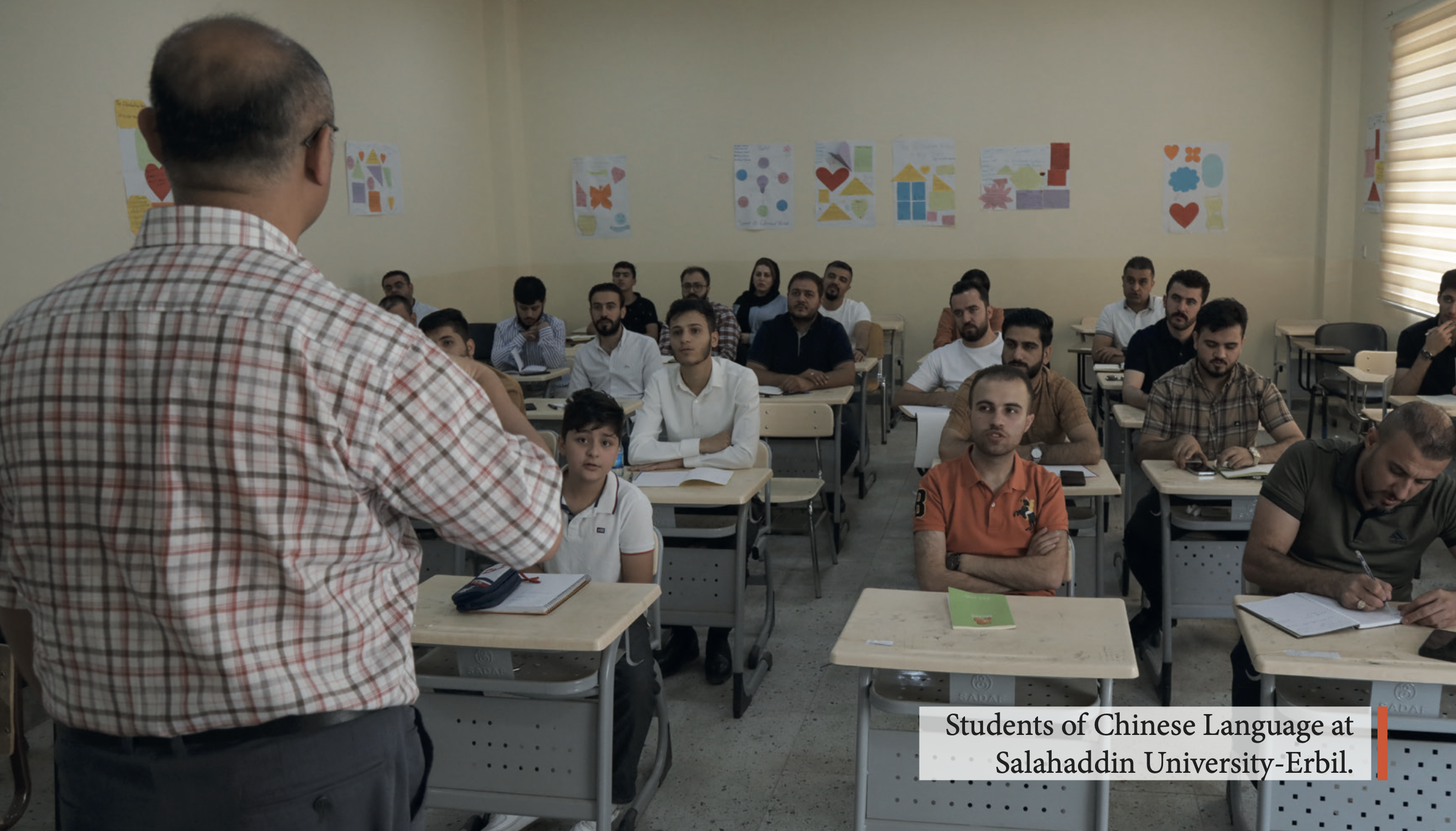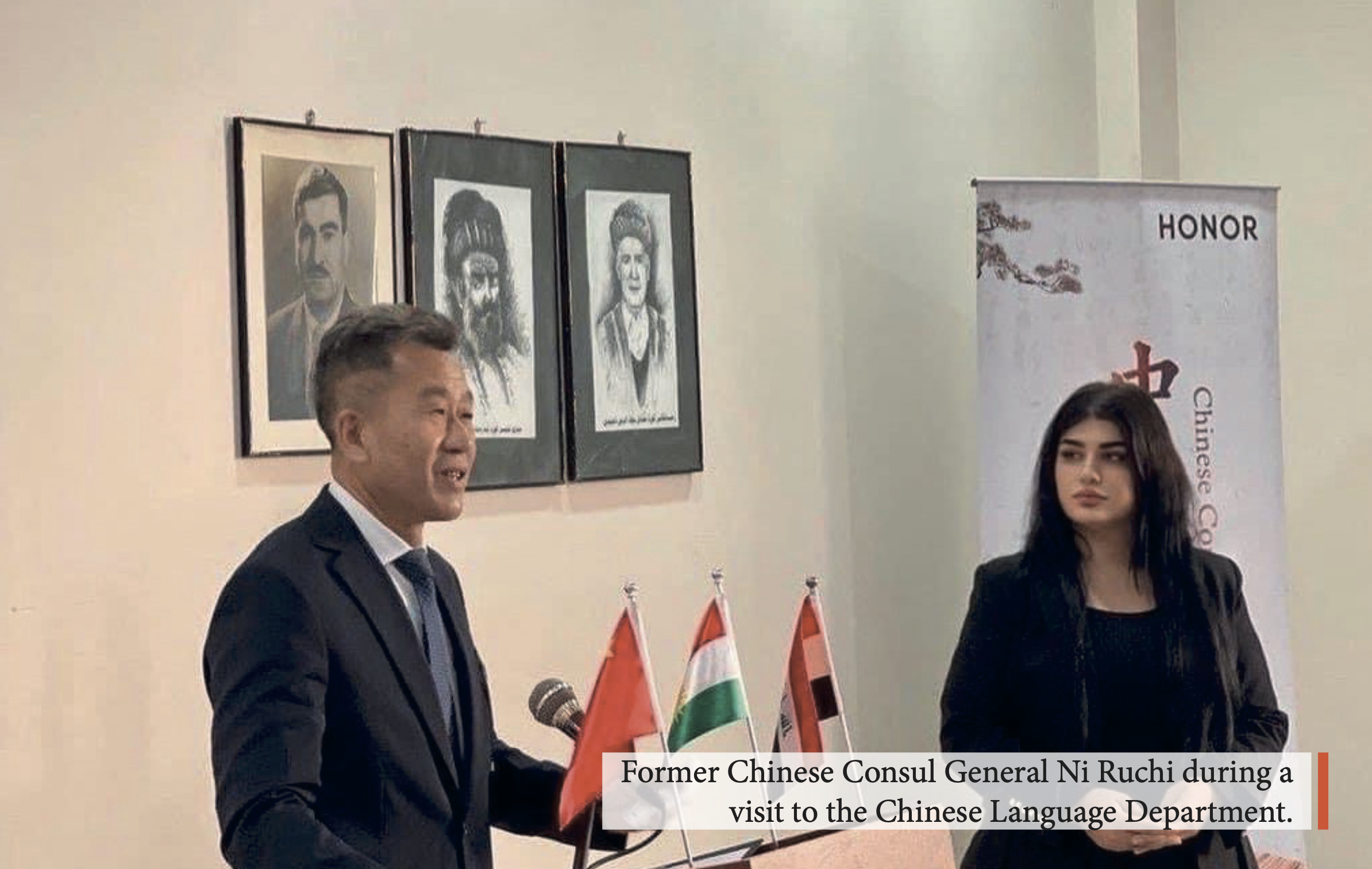Learning Mandarin Chinese is seen as a form of soft power that China can use to help establish diplomatic and commercial ties.
Dilan Kawa Ibrahim, a 22-year-old native of Iraqi Kurdistan, has always been captivated by the cultures and languages of East Asian nations. Her interest in Korean dramas led her to teach herself the language, but her fascination did not stop there.
As a child, Dilan's father was a photographer with the South Korean Army in Erbil, the capital of Iraqi Kurdistan. As part of South Korea's commitment to the Iraq War between 2004 and 2008, he performed peacekeeping and other reconstruction-related duties.
Dilan's exposure to South Korean soldiers left a lasting impression on her, and when she learned that a Chinese language department had been established at Salahaddin University, she applied without hesitation, thinking that the language would be similar to Korean. However, she soon realized that Chinese was unlike any other language she had encountered.
"The Chinese language is powerful; every word has multiple meanings," Dilan remarked.
Despite the challenges, she persisted and was delighted to find that all her lecturers were in Chinese. Now in her fourth year of university, Dilan works part-time as a translator at the Chinese General Consulate in Erbil.
Dilan said speaking Chinese is a manageable task with daily practice, but writing Chinese remains a difficult challenge. Nonetheless, she remains steadfast in her determination to continue mastering the language. With China's growing influence around the world, Dilan's proficiency in Mandarin Chinese may well serve as a valuable asset in her future career endeavors.

“Reviving the Silk Road”
In the Middle East, only three countries boast Chinese language departments: Iran, Turkey, and the Iraqi Kurdistan region. The Chinese language department at Salahaddin University in Erbil was established in 2019 following an agreement between the university and China's General Consulate.
The College of Languages at Salahaddin University comprises numerous language departments, including Kurdish, Arabic, Farsi, Turkish, English, German, and French.
The China General Consulate has provided the department with three Chinese teachers to aid in language teaching. Currently, the department has 33 students, 13 of whom will graduate this year. However, the pandemic prevented the department from admitting new students for the last two years.
Dr. Barzan Jafaar Ali, head of the Chinese language department, told Kurdistan Chronicle that China has already awarded two scholarships to students in the department, with the expectation that upon completion of their master's degrees they will return to teach at the department. Furthermore, he stated that this summer, a group of students from the department will travel to China as part of a summer camp funded by the Chinese government.
"Kurdistan was on the Silk Road during the Middle Ages; today, China hopes to restore this relationship with the Kurdistan region through commerce and culture,” said Dr. Barzan, who believes that the Kurdistan region is the starting point for this revival throughout the rest of Iraq and beyond.
Dr. Barzan noted that many students in the department chose to enroll because they believe it will enhance their job prospects. Many Chinese companies operate in the Kurdistan region, and numerous Kurdish enterprises conduct business with China.
Mohammad Amin Ahmed, a 20-year-old first-year student in the department told Kurdistan Chronicle that he chose to study Chinese because there are so many Chinese companies in Kurdistan.

“We are like one family”
In a fourth-year class of 13 students, China has left an indelible mark. All 13 have been working part-time for Chinese businesses for the past two years, where they learn Chinese on the job. Rayan Mustafa Qadir, a 21-year-old student, says Chinese companies approach them not because they speak Chinese fluently but because they want to assist them in practicing more.
"Every day at work, they teach us new words and expressions and correct our mistakes; it's like learning Chinese on the job," said Rayan, who works part-time at a Chinese electronics company. Rayan is grateful for the opportunity and finds it irritating when her peers belittle Chinese products. "China produces high-quality products, but our businesses import primarily low-quality, inexpensive products from China," said Rayan.
The students share a close bond with their Chinese teachers, who have become more than just mentors but friends as well. If a student is sick, the teachers bring herbs. Sometimes they even cook Chinese food like dumplings for them inside the class. In turn, the students prepare traditional Kurdish dishes for their Chinese instructors, although "they like kebab a lot," as Rayan cheerfully put it.
"They teach us of hard work, dedication and a better education system," added Rayan. Rayan's father, who always pushed her to do well in university, often tests her by asking her to translate Chinese news TV and inquires about what she has learned each day. Rayan has even adopted a Chinese name, 李艳, which means Grateful or Colorful, and plans to live and work in China one day. "In the future, I want to teach the Kurdish language in China, as the Chinese are teaching us their language in Kurdistan," Rayan added.
As for Dilan, whose Chinese name is 袁红梅, which is the name of a flower, she is not interested in conducting business with Chinese enterprises but rather in strengthening bilateral ties between the Kurdistan region and China. Dilan hopes one day to represent the Kurdistan region in China or work in the education sector to introduce the Chinese education system to Kurdistan.
Qassim Khidhir has 15 years of experience in journalism and media development in Iraq. He has contributed to both local and international media outlets.

